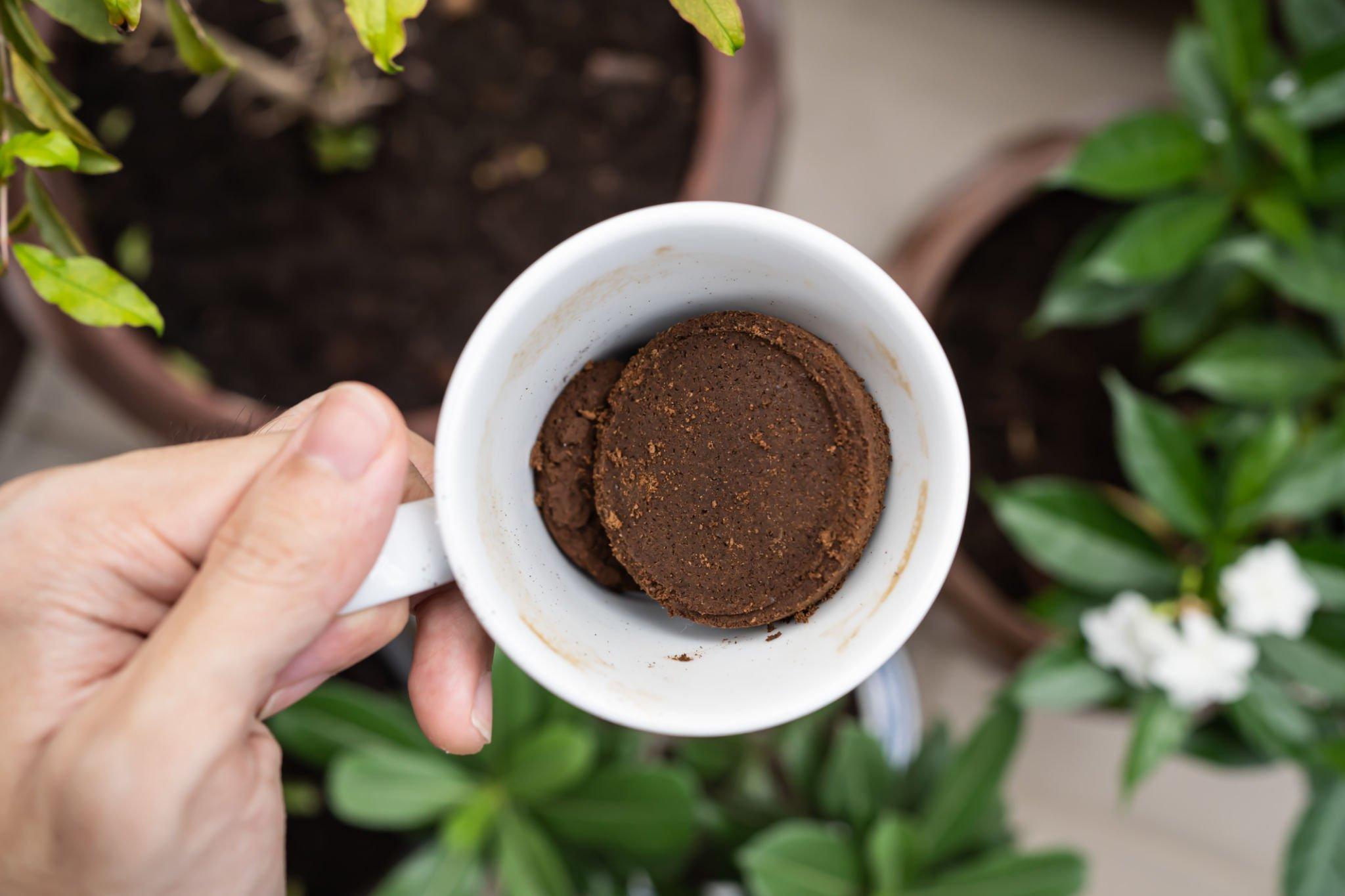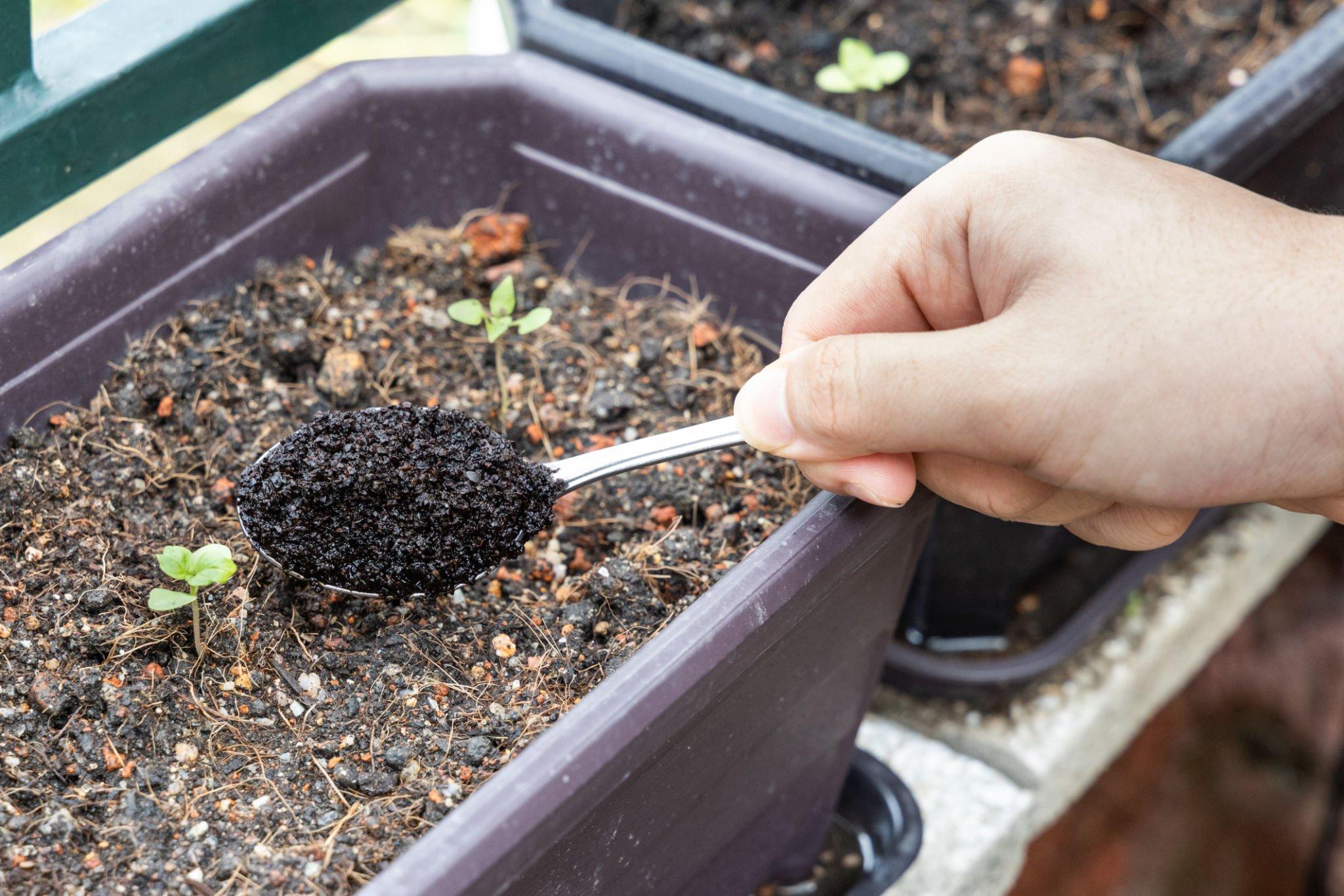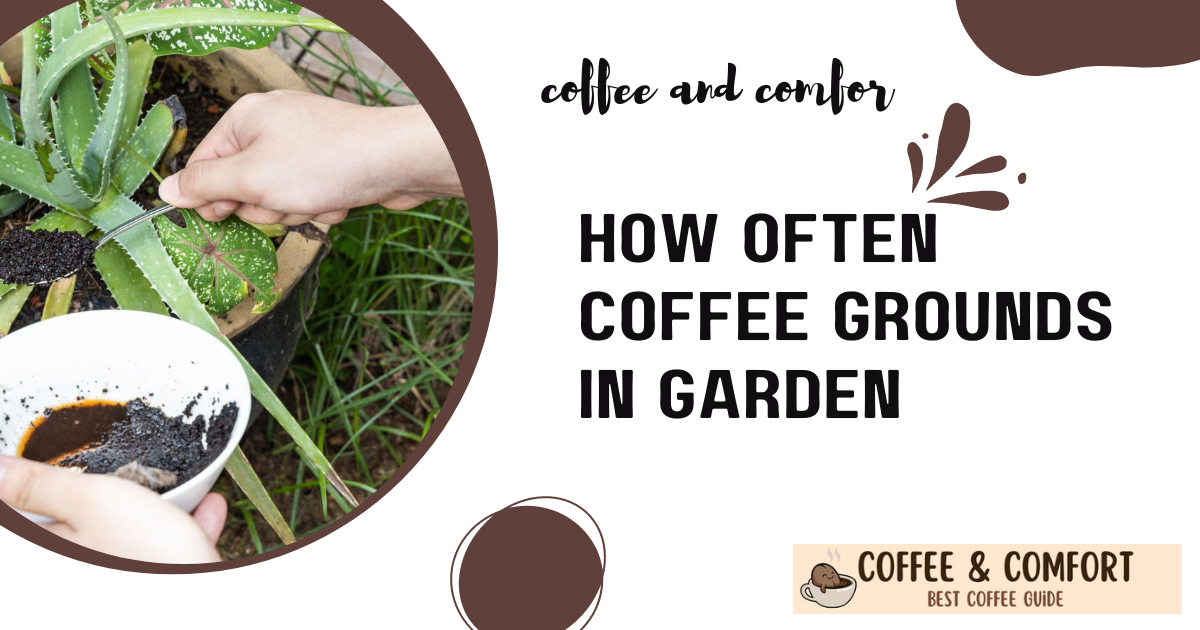Grow your garden with nutrient-rich coffee grounds! Learn how often to use them for the best results.
Coffee grounds in the garden are like a match made in heaven! Not only do they provide a great source of nitrogen for your plants, but they also add a unique flavor to your garden that you won’t find anywhere else.
So, if you’re looking for a way to give your garden a little extra oomph, then you should definitely consider adding coffee grounds to the mix.
Benefits of Using Coffee Grounds in the Garden
Using coffee grounds in the garden offers a range of benefits to gardeners, from providing natural fertilizer to helping combat pest infestations. Coffee grounds are particularly beneficial for acid-loving plants like roses, blueberries, and azaleas, as the grounds are naturally acidic.
Coffee grounds are also rich in nitrogen, a key nutrient for plant growth. Additionally, the grounds act as a natural deodorizer, masking unpleasant smells while also attracting beneficial earthworms and other insects to the garden.
Frequency of Applying Coffee Grounds to the Garden
The frequency of applying coffee grounds to the garden depends on the size of the garden and the type of plants being grown. For complete coverage, apply a thin layer of grounds every two to four weeks.
Applying too much can lead to a buildup of acidity, which can harm some sensitive plants. For best results, mix the grounds with compost or other organic matter, as this will help to neutralize the acidity.

Types of Coffee Grounds Suitable for Gardening
The most suitable type of coffee grounds for gardening are those from organic beans, as these will be free from chemicals and other toxins. Unused grounds from brewing coffee are also suitable for use in the garden.
However, grounds from instant coffee, decaffeinated coffee, and flavored coffee should be avoided, as these may contain additional ingredients that can be harmful to plants.
How to Apply Coffee Grounds to the Garden
Coffee grounds can be applied to the ground around plants, or added to compost piles or worm bins. For best results, mix the grounds with compost or other organic matter before applying to the garden.
Alternatively, they can be sprinkled lightly over the top of the soil, or even mixed into the soil itself.
Potential Risks of Using Coffee Grounds in the Garden
The main risk associated with using coffee grounds in the garden is an excess of acidity. As coffee grounds are naturally acidic, using too much can lead to a buildup of acidity in the soil, which can be harmful to some plants.
To avoid this, use a thin layer of grounds every two to four weeks, and mix the grounds with compost or other organic matter to neutralize

Frequently Asked Questions (FAQ)
Q1: How often should I add coffee grounds to my garden?
A1: Coffee grounds should be added to your garden every two to three weeks.
Q2: Is it safe to add coffee grounds to my garden?
A2: Yes, it is safe to add coffee grounds to your garden. Coffee grounds are a great source of nitrogen and other nutrients that can help your plants grow.
Q3: What are the benefits of adding coffee grounds to my garden?
A3: Adding coffee grounds to your garden can help improve soil structure, increase water retention, and provide essential nutrients to your plants.
Q4: How much coffee grounds should I add to my garden?
A4: You should add about one cup of coffee grounds per square foot of garden soil.
Q5: Can I use used coffee grounds in my garden?
A5: Yes, you can use used coffee grounds in your garden. Used coffee grounds are just as effective as fresh grounds.
Final Word
Coffee grounds in the garden can be a great way to add nutrients to the soil and help plants grow.
Used coffee grounds should be added to the garden every few weeks to ensure the soil is getting the nutrients it needs.

My name is Michael Jones, and I’m a coffee enthusiast and expert based in the US. I run my own coffee shop, and I’m passionate about everything related to coffee. On my website, Coffee and Comfort, I share my knowledge and tips to help you elevate your coffee experience. Whether you’re a beginner brewer or a seasoned barista, I have something for everyone. I’ll teach you how to choose the right coffee beans, grind them perfectly, and brew a delicious cup of coffee at home. I’ll also share tips on how to make different coffee drinks, like lattes, cappuccinos, and espressos. But more than just teaching you about coffee, I want to help you create a coffee lifestyle that you love. Coffee is more than just a beverage; it’s a way to connect with people and enjoy the simple things in life.
